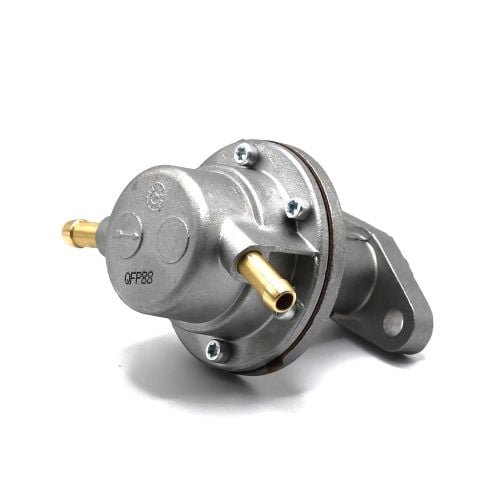Fuel pressure plays a crucial role in the efficient functioning of any combustion engine. It determines the amount of fuel delivered to the engine, affecting its performance, fuel economy, and emissions. In this blog post, we will delve into the intricacies of bad fuel pressure, exploring its causes, symptoms, and potential consequences. By understanding the dangers associated with inadequate fuel pressure, you can take proactive measures to ensure the optimal performance and longevity of your vehicle.
- The Basics of Fuel Pressure:
Before we dive into the implications of bad fuel pressure, let's first establish a solid foundation by understanding what fuel pressure is and how it is regulated in a typical fuel system. We will explore the key components involved, such as the fuel pump, fuel pressure regulator, and fuel injectors, shedding light on their roles in maintaining the desired pressure levels. - Causes of Bad Fuel Pressure:
There are several factors that can contribute to a drop in fuel pressure, leading to suboptimal engine performance. We will discuss common causes such as a faulty fuel pump, clogged fuel filter, or a malfunctioning fuel pressure regulator. By identifying these underlying issues, you can take appropriate action to rectify them and restore proper fuel pressure. - Symptoms of Bad Fuel Pressure:
Recognizing the signs of inadequate fuel pressure is crucial in diagnosing and addressing the problem promptly. We will outline various symptoms that may indicate a fuel pressure issue, including engine misfires, rough idling, decreased power, and poor fuel efficiency. By paying attention to these warning signs, you can prevent further damage to your engine and avoid costly repairs. - Consequences of Ignoring Bad Fuel Pressure:
Neglecting the importance of maintaining optimal fuel pressure can have severe consequences for your vehicle. We will explore the potential risks, such as increased engine wear, reduced fuel economy, and elevated emissions. Additionally, we will highlight the potential long-term effects on critical engine components, including the fuel injectors, fuel pump, and even the catalytic converter. - Solutions and Maintenance:
In this section, we will provide practical tips and solutions to address and prevent bad fuel pressure. From regular fuel system maintenance to proper fuel filter replacement, we will guide you through the steps necessary to ensure consistent fuel pressure and optimal engine performance. Additionally, we will discuss the importance of using high-quality fuel and the benefits of fuel additives in maintaining a clean and efficient fuel system.
Conclusion:
Maintaining proper fuel pressure is essential for the smooth operation of any combustion engine. By understanding the causes, symptoms, and consequences of bad fuel pressure, you can take proactive measures to prevent potential issues and ensure the longevity of your vehicle. Remember, regular maintenance and prompt action are key to preserving optimal fuel pressure and enjoying a reliable and efficient driving experience.

